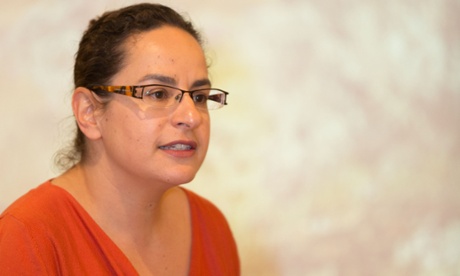Specialist access is piecemeal for Aboriginal and Torres Strait Islanders, says the Royal Australasian College of Physicians

Access to government-subsidised medical specialists for Aboriginal and Torres Strait Islander people is piecemeal and rife with barriers, according to the leading organisation representing physicians and paediatricians in Australia.
Indigenous Australians used specialists 178 times less per 1,000 people compared to the general community, the president of the Royal Australasian College of Physicians, Professor Nicholas Talley, told a national forum of Indigenous health experts in Sydney on Wednesday.
This was despite Indigenous people having greater health needs.
“Clearly the college and many other health organisations are concerned about closing the gap, and there is still a very significant gap,” he said.
Following the forum, the college will present the federal assistant health minister, Fiona Nash, with a proposal for a national specialist access plan that could be included in the national Aboriginal and Torres Strait Islander health plan, he said.
Dr Mary Belfrage, from the Victorian Aboriginal Health Service, said there were several barriers to Indigenous people accessing specialists, including a lack of political will to make Indigenous people a focus of health and social services policy.
“That’s been the case since colonisation, where policy makers haven’t had the interests of Aboriginal and Torres Strait Islander people in their vision,” she said. “There is also subtle institutional racism that systematically discriminates against Indigenous Australians, and that’s true of health services.
“There are two dimensions to this issue. There are services not being offered, referrals not being made, medicines not being prescribed and procedures not being done.
“But also, Aboriginal and Torres Strait Islanders may not be taking up the services being offered to them, and that’s about trust and belief in the value of the service.”
There was also evidence services were not being offered by medical staff because they assumed those offers would not be taken up, she said.
Dr Mahiban Thomas, a general, head, and neck surgeon at Royal Darwin Hospital, said geographical barriers often meant Indigenous Australians did not always make it to appointments with him.
“I travel to Gove district hospital once a month to spend a day there operating, and another day seeing patients in the clinic,” he said.
“When I’m doing clinic, I will often be sitting there twiddling my thumbs because patients from each community have to agree to get onto the plane and make what can be a large trip to come and see me.
“I am not being critical of those patients in any way. Because in a way, the system is letting them down because we don’t have an adequate way of communicating the need for them to attend clinic, to go to follow-up specialist appointments, and sometimes there are cultural issues which mean patients don’t stay on treatment.”
There must be a willingness to work within Indigenous cultures and communities, Thomas said. One intervention he and his staff were examining was taking appointments as close to the patients’ homes as possible.
“What we are also doing is setting up a coordinator who can set up a conversation via video and then look at the various issues individuals have, so that might be educating a patient and empowering them about their care, or helping them to access transport in an appropriate timeframe.
“But a lack of government funding means it is hard to take our staff and equipment into very small communities.”
According to a council of Australian governments report released in May, the heart attack rate for Indigenous people in 2011 was 2.5 times higher than that of other Australians. In 2010, the prevalence of lung cancer in Indigenous Australians was nearly double that of other Australians.
Dr Tamara Mackean, chair of the college’s Aboriginal and Torres Strait Islander health advisory committee, said the specialty services lacking depended on the area. But there was a greater need for cardiac, respiratory, oncological, paediatric and gastroenterological care, she said.
A framework for better care should look at well-established medical specialist services in some communities that were working well and resulting in improvements to the health of Aboriginal and Torres Strait Islander peoples, she said.
“The proposed framework will support the integration of specialist care with the care provided by community and primary healthcare services, and will ensure the care needed is accessible across all of Australia,” she said.
Nash’s office had not returned calls from Guardian Australia at time of publishing.
